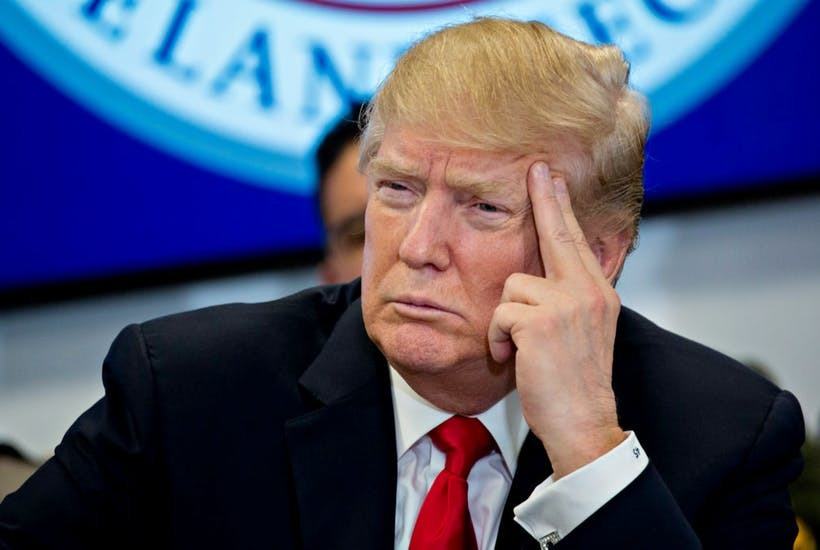Donald Trump has found himself in the midst of another international spat, fuelled this time by his attack on the UK’s national religion. In an attempt to verbally jab the opposition in his own country, the President has managed to rile up many thousands, if not millions, of people who have deep reverence for Britain’s National Health Service:
The Democrats are pushing for Universal HealthCare while thousands of people are marching in the UK because their U system is going broke and not working. Dems want to greatly raise taxes for really bad and non-personal medical care. No thanks!
— Donald J. Trump (@realDonaldTrump) February 5, 2018
I’m rarely on the side of Trump’s Twitter provocations, but this one, I’ll admit, isn’t half bad. While Trump is wrong about the protestors’ motivations (giving the tweet ‘top troll’ status), he is right that they march in the wake of a ‘broke’ system. Only extreme ideological dedication to those three little letters could blind someone to this reality.
Despite increased funding for the system in real terms (albeit at a slowed rate of growth), the NHS is still breaking down in the most serious areas, including maternity wards and A&E. The NHS can’t even handle the winter flu without cancelling 50,000 operations in the first month of the year. The centralisation and lack of choice within healthcare provisions makes it ‘non-personal medical care’ almost by definition. And perhaps, most worryingly, the NHS has such an emotional hold on people that no one can criticise it without being accused of blasphemy.
Senior politicians are applauded for making ridiculous claims, such as that the system is the ‘envy of the world’, when in reality it ranks in the bottom third in international comparisons of health system performance.
As I walked through trickles of the ‘Save our NHS’ protest on Saturday in Parliament Square, I thought: who in their right mind could be outside Britain, looking in, and think this was a system worth emulating? Nobody in the developed world should envy the NHS. Not even the USA.
Trump’s quip has made its way into international headlines, as some of the UK’s heavy hitters pushed back on his comments. ‘I may disagree with claims made on that march but not ONE of them wants to live in a system where 28m people have no cover,’ Health Secretary Jeremy Hunt tweeted. ‘NHS may have challenges but I’m proud to be from the country that invented universal coverage – where all get care no matter the size of their bank balance.’
Number 10 chimed in too, saying that ‘the prime minister is proud of having an NHS that is free at the point of delivery’, and subsequently quoting the dubious Commonwealth Fund study, which, despite ranking the UK first overall, ranks it second to last in the healthcare outcomes section.
Hunt is right that the UK ‘invented’ the concept of universal coverage. But this is no longer equivalent to a single-payer system. Indeed, most of the developed world has adopted the principle of universal access to healthcare, without adopting the NHS.
The USA, for all its problems in healthcare, would do well to look to the social health insurance system in Europe (which combine government funding, guaranteed access, and private provisions to produce some of the best patient outcomes) for reform and guidance. But so should the UK. 28 million uninsured Americans is no proof that British patients have access to top-rate care.
As UK and US leaders duke it out to determine which system is preferable, it becomes increasingly obvious that neither system is fit for purpose. If you read between the tweets, you’ll discover that the pathway to better, more patient-centric healthcare lies outside the ‘NHS v USA’ bubble.
Kate Andrews is news editor at the Institute of Economic Affairs.


















